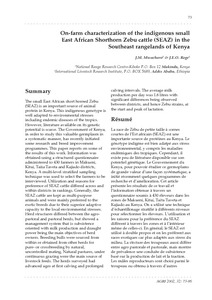Carinthia Wood and Pasture Exploitation Law.
The present Law lays down provisions relating to the right of wood and pasture exploitation in the Region of Carinthia. The text consists of 63 articles divided into 9 chapters as follows: General provisions (I); New regulation and regulation of traditional rights (II); Transfer of exploitation rights (III); Safeguard of rights of use (IV); Basic rights of wood cutting in case of need (V); Special field services (VI); Authorities and proceedings (VII); Penalties (VIII).




